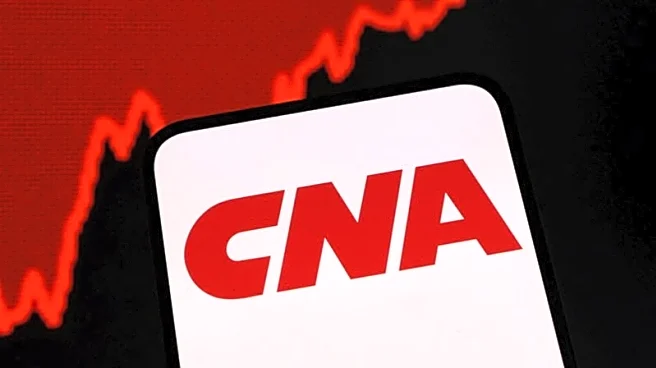What's Happening?
The strike involving Boeing defense workers has been extended after recent negotiations failed to reach an agreement. The strike, which began on August 4, involves 3,200 workers in Missouri and Illinois. The breakdown in talks has led to public recriminations
between Boeing and the International Association of Machinists and Aerospace Workers (IAM). Boeing has accused the union leadership of refusing to allow a vote on its latest offer, which includes a $3,000 addition in restricted stock to boost the signing bonus. The union, however, has labeled the offer as 'disrespectful' and 'insulting,' citing the rising cost of living and the skills required of Boeing's manufacturing workers.
Why It's Important?
The continuation of the strike highlights ongoing tensions between labor unions and large corporations, particularly in the defense sector. The strike affects Boeing's operations and could have broader implications for the defense industry, potentially impacting production schedules and contract fulfillment. It underscores the challenges faced by workers in negotiating fair compensation and benefits in an era of rising living costs. The situation also reflects the broader labor movement's push for improved working conditions and the importance of collective bargaining in achieving these goals.
What's Next?
As the strike continues, both Boeing and the IAM are likely to face increased pressure to resolve the dispute. The prolonged strike could lead to further disruptions in Boeing's operations, affecting its ability to meet contractual obligations. The union may seek additional support from political leaders or other labor organizations to strengthen its position. Meanwhile, Boeing may explore alternative strategies to mitigate the impact of the strike, such as adjusting production schedules or seeking temporary workforce solutions. The outcome of this dispute could influence future labor negotiations within the industry.
Beyond the Headlines
The strike at Boeing raises important questions about the balance between corporate profitability and worker rights. It highlights the ethical considerations of fair labor practices and the role of unions in advocating for workers. The situation may prompt discussions on the need for regulatory reforms to ensure equitable treatment of workers in large corporations. Additionally, the strike could influence public perception of Boeing and its commitment to social responsibility, potentially affecting its reputation and stakeholder relationships.
















